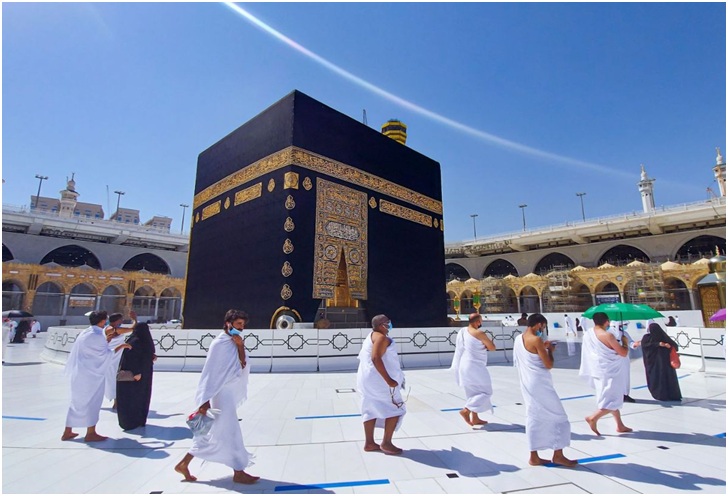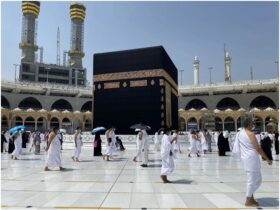Table of Contents
Introduction:
The Hajj is considered to be one of the most significant religious obligations that Muslims are obligated to fulfill, and it is required of every Muslim who is financially and physically capable of performing it at least once in their lifetime. The Hajj is a spiritual journey that requires special preparations, and the following advice can help improve the experience of performing the Hajj.
Preparation Before the Trip
1. Mental and spiritual preparation
In order to better prepare your soul for the Hajj journey, it is recommended that you read the Qur’an and pray and supplication in accordance with the recommended prayers. Your spirituality can be strengthened by increasing the amount of time you spend worshipping and remembering God.
2. Physical fitness
It is essential to make sure that your physical health is in good shape before you travel to perform the Hajj because it involves a lot of physical activities. Please seek the advice of a medical professional and, if necessary, obtain the vaccinations that are required.
3. Financial readiness
There are several Hajj and Umrah packages 2024 Uk ; you should create a detailed budget and make an estimate of the costs associated with the Hajj. These costs should include the cost of lodging, food, transportation, and any other associated costs. Additionally, it is a smart idea to carry some additional cash with you in case of unexpected expenses.
How to Perform Hajj?
1. Ihram
The first stage of the Hajj rituals is called Ihram, and it begins with the intention of performing the Hajj and the preparation of Ihram garments. Men wear two pieces of white cloth that are not stitched together, and women wear a straightforward dress that does not have any embellishments. The Miqat is where Ihram is performed.
2. Tawaf Qadum
Once they have entered Mecca, pilgrims are required to perform seven circumambulations around the Kaaba. One of the most important aspects of the Hajj is the Tawaf, which is also referred to as the Tawaf Qadum.
3. Sa’i between Safa and Marwah
Immediately following the Tawaf, pilgrims are required to make seven attempts between the two hills of Safa and Marwah. This performance is carried out in remembrance of Hazrat Hagar and her quest to find water.
4. Arafat
Pious individuals travel to Arafat on the ninth day of the month of Dhul-Hijjah and remain there until the sun sets. In Arafat, this waqf is considered to be one of the pillars of the Hajj, and the Hajj would be impossible to perform without it.
5. Mushar al-Haram (Muzdalifah)
Pilgrims travel to Mashar al-Haram (Muzdalfa) after the sun has set on the day of Arafat and spend the night there. Pebbles for the Rami Jamrat service are collected by pilgrims at this location.
6. Rami Jamrat
Pilgrims make their way back to Mina on the tenth day of the month of Dhul-Hijjah in order to perform the Rami Jamrah of Aqaba. This action is carried out in remembrance of Abraham and in order to drive the devil away.
7. Sacrifice
Pious individuals offer sacrifices after the Rami Jamreh Aqaba. The meat that was sacrificed is given to those who are in need, and a portion of it is also consumed by pilgrims.
8. Guilt
It is required that men shave or cut their heads (known as halq), and women must also cut a portion of their hair (known as taqseer) after the sacrifice.
9. Circumcision
The pilgrims then make their way back to Mecca to perform the Tawaf Afaza ritual after the sacrifice. A total of seven circumambulations of the Kaaba are included in this Tawaf.
10. Sa’i between Safa and Marwah (again)
Pilgrims are required to perform Sa’i once more between Safa and Marwah after they have completed Tawaf Afazah.
11. Rami Jamrat (in the days of Tashriq)
It is obligatory for pilgrims to perform the three Jamrahs (the first Jamrah, the middle Jamrah, and the final Jamrah) on the eleventh, twelveth, and thirteenth days of the month of Dhul-Hijjah.
12. Farewell circumambulation
It is obligatory for the pilgrims to perform Tawaf and farewell before departing from Makkah. In addition, this Tawaf entails making seven circuits around the Kaaba, which is a way of saying goodbye to the house by which God is worshiped.
Essential Tips for Hajj
1. Getting to Know Hajj Rituals
Be sure to familiarize yourself with the various rituals and stages of the Hajj before you embark on your journey, and if at all possible, seek the guidance of individuals who have already completed the Hajj.
2. Carrying Essential Supplies
Please remember to bring along your personal belongings, essential medications, appropriate clothing, the Hajj manual, and hygiene items.
3. Time Management
When the Hajj rituals are performed is of utmost significance. To prevent any crowding, you should make every effort to make your plans on time and in accordance with the schedule.
4. Hygiene
Throughout the journey of the Hajj, it is of the utmost importance to properly maintain personal and environmental hygiene. Wearing a mask, washing one’s hands, drinking plenty of water, and eating nutritious food are all ways to reduce the risk of contracting contagious diseases.
5. Patience and Tolerance
Because the Hajj is a spiritual journey, it is possible that it will be accompanied by difficulties and challenges. One way to enhance one’s spiritual experience is to practice patience and persevere through challenging situations.
Also Read: How to Save Money for Your Umrah Pilgrimage?
Conclusion:
The Hajj is a remarkable opportunity to have a profound spiritual experience and to deepen one’s relationship with God. By making the necessary preparations and adhering to the advice presented above, you will be able to complete this spiritual journey in the most effective manner and reap the benefits of its blessings.





